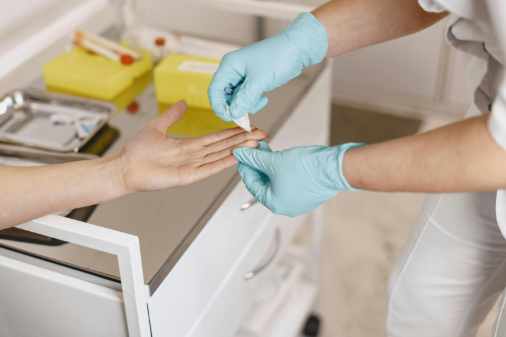Fitness and the Mind-Body Connection: How Your Thoughts Determine Your Results
Fitness and Mind-Body Connection

Many consider fitness a purely physical pursuit, but a growing body of research suggests the importance of the mind. Our thoughts and emotions can have a significant impact on our physical performance.
Read on to understand how the mind-body connection can influence your fitness and recovery. You can also get tips on harnessing its power to achieve your fitness goals.
The Mind-Body Connection
Our thoughts, emotions, and physical bodies have an inherent connection. In fact, new research suggests that the relationship is part of the brain’s neurology. This fact highlights that your mental state considerably influences your physical health. For those on the fitness journey, this fact implies that your thoughts and attitudes can either drive or hinder you. This hormone can increase heart rate, blood pressure, and muscle tension. When you're stressed, your body releases reduce mental focus, potentially leading to anxiety, depression, or other conditions. Conversely, our bodies release endorphins when we are physically active. This hormone has mood-boosting and pain-relieving effects.
Power of Positive Thinking
Positive thinking plays a vital role in your road to recovery. Your thoughts and attitudes can directly influence your physical performance and overall well-being. Approaching fitness with a positive mindset increases your chances of success. Higher stress levels can break down muscle tissue. Maintaining a positive outlook can create a better environment for muscle growth.
Role of Nutrition
Nutrition is a vital aspect that influences the mind-body connection. It's not about consuming fewer calories, but how they impact your well-being. Proper nutrition affects your mental clarity and emotional stability. Omega-3 fatty acids found in fish or antioxidants from fruits and vegetables can enhance brain function and mood regulation. When your mind is clear, you can tackle challenging fitness routines and make healthier choices.
Proper hydration is fundamental, as dehydration can lead to fatigue, reduced concentration, and mood swings. A hydrated body functions optimally and heals more effectively. Remember, your body's recovery depends on what you eat and drink.
Leveraging the Power of Mind-Body Connection
Maintaining the connection between mind and body helps you recover better. The following practical tips can help you improve the connection:
Mindful Exercise
Being fully present in the moment is vital when engaging in physical activities. An easy way to practice is by focusing on your body's sensations and breathing rhythm. This small change can increase your physical performance and reduce stress. Research shows that practicing mindfulness can even help reduce substance abuse relapses.
Visualization
Just as you visualize success in your workouts, you can use this technique for recovery. Picture your body healing and getting stronger. Imagine your muscles repairing and your energy returning. This mental imagery can speed up recovery by promoting a positive mindset.
Positive Affirmations
Be mindful of the way you speak to yourself. It’s better to replace self-criticism with encouragement. It's better to stop being negative and say, "I can't do this," and tell yourself, "I am capable, and I can progress." This way, you can boost your confidence and resilience.
Mindful Rest and Nutrition
When recovering, listening to your body is crucial. Pay attention to its signals and give it the rest it needs. Mindful rest means not just lying down but also taking the time to relax mentally. Nutrition during recovery is essential. Ensure you provide your body with the necessary nutrients to repair and rebuild. This includes protein for muscle repair, vitamins for overall health, and antioxidants to reduce inflammation.
Set Realistic Goals
Aiming high is essential, but you must also set realistic and achievable goals. Setting unrealistic goals can lead to frustration and hinder your recovery progress. You can start by breaking your long-term objectives into smaller, manageable steps. Celebrating each small victory along the way is vital, as these milestones can fuel your motivation.
Embrace Challenges
Challenges are growth opportunities. Don't be discouraged when encountering setbacks or plateaus in your fitness journey. Instead, see them as stepping stones toward your goals. A growth mindset not only keeps you motivated but also accelerates your progress.
Community Support and Journaling
Keep a gratitude journal to acknowledge your progress on your fitness and recovery journey. This practice can shift your focus from setbacks to achievements, reinforcing a positive mindset. You should also be aware of the power of a supportive community. Surround yourself with individuals who share your fitness goals and recovery journey. Sharing experiences, challenges, and triumphs can create a sense of belonging and motivation.
Stress Management
Stress can be a significant roadblock to fitness or recovery. It can disrupt the mind-body connection and hinder progress. Practices like deep breathing exercises, mindfulness meditation, or even a short walk in nature can help reduce stress levels. Keeping stress in check can relax your mind and increase your body’s healing ability. In fact, research shows that stress can significantly slow down wound healing.
Stay Consistent
Consistency is the backbone of any successful fitness journey. It becomes second nature when you consistently engage in mindful exercise, positive visualization, and other practices. It helps build a strong bridge between your mind and body. It's easy to become discouraged if you're not seeing immediate results, but consistent effort keeps you moving forward. Over time, this can lead to significant improvements in both your physical and mental well-being.
Incorporate Variety
Keep your routine diverse and engaging. Exploring different forms of exercise prevents monotony and challenges your mind and body in new ways. Variety keeps the mind-body connection vibrant. You can choose activities like sports, dance classes, or even gardening.
Examples of Mind-Body Connection
Here are a few examples of the mind-body connection in fitness:
- Placebo Effect: When a person believes that a treatment will help them, their body may improve, even if the treatment itself is inert. The health improvement happens because the person believes they are receiving a real medical intervention. It's often used in medical research to study the psychological and physiological effects on health outcomes.
- Self-Talk: The way you talk to yourself matters in your workout journey. If you keep saying you're tired or can't do something, it's tough to push yourself. But if you use positive self-talk, your chances of success go up.
- Mindfulness: This mental practice involves paying deliberate and non-judgmental attention to the present moment. It’s about paying attention to your thoughts, feelings, and bodily sensations without judgment. A common way to practice mindfulness is through meditation. It's often a tool for managing anxiety, depression, and stress-related disorders.
Ready to take your fitness and recovery journey to the next level? You can discover a more holistic approach to wellness at the Bayou Bend Fitness Center. Our mission is to promote and provide quality healthcare services while improving the health of our community. To learn more about health and wellness programs provided by the Bayou Bend Fitness Center, please call
(337) 413-5106.



